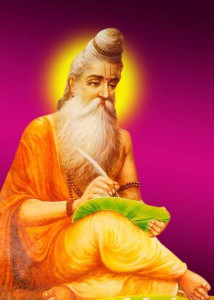Vidyapati’s Beautiful Garden
Once, in a quaint village, there lived an old brahmana named Vidyapati. He owned a beautiful garden, which he cherished dearly. However, he was very selfish and did not want to share his garden with anyone—not even the birds. Vidyapati would shoo away any birds that tried to sit on the sunflowers in his garden.
The Stray Cow Incident
One day, Vidyapati saw a stray cow eating the mango saplings in his garden. In a fit of rage, he began to beat the cow with his stick. The cow, already old, thin, and hungry, soon dropped down dead. Vidyapati was shocked and horrified by what he had done.
The Villagers’ Accusation
The villagers, seeing the dead cow, began accusing Vidyapati of committing a great sin. The village headman declared that Vidyapati would be punished for his crime. The next day, when the villagers gathered to decide on his punishment, Vidyapati tried to absolve himself of the blame. He argued, “It was my hand that killed the cow. And Lord Indra is the presiding demigod of the hand. If Indra guides the hand, it is not I who killed the cow, but he! So, he is to be blamed!”
Indra’s Intervention
This news spread quickly, reaching the ears of Indra himself. Taking the form of a young brahmana, Indra walked casually into Vidyapati’s garden and praised its beauty. Vidyapati, flattered, took credit for tending the garden and setting up the fountain with his own hands.
The Revelation
At that moment, the young brahmana revealed his true form as Indra and said, “O brahmana, if you take the credit for setting up your garden with your hands, then you should also take the blame for killing the cow with your hands! Why accuse poor Indra for that?” With these words, Indra vanished, leaving Vidyapati to realize his mistake.
Moral of the Story
This story illustrates how people often want to take credit for their achievements but avoid responsibility for their mistakes. Vidyapati wanted to bask in the glory of his garden but shirked the blame for his wrongdoing.
Proper Conduct from Srimad Bhagavatam
We see a proper example of conduct from Srimad Bhagavatam when Prthu Maharaj immediately rejected the praise offered to him by professional reciters (SB 4.15.24):
“mahad-gunaan aatmani kartum isah kah staavakaih staavayate ‘sato ‘pi te ‘syaabhavishyann iti vipralabdho janaavahaasam kumatir na veda”
“How could an intelligent man competent enough to possess such exalted qualities allow his followers to praise him if he did not actually have them? Praising a man by saying that if he were educated he might have become a great scholar or great personality is nothing but a process of cheating. A foolish person who agrees to accept such praise does not know that such words simply insult him.”
Similarly, in Srimad Bhagavatam, when the two gatekeepers of Vaikunta, Jaya and Vijaya, did not allow the Sanat Kumaras to enter and were cursed by them, the Lord considered the disrespect shown by His doorkeepers to be an offense by Himself and sought forgiveness from the Kumaras (SB 3.16.6):
“chindyaam sva-baahum api vah pratikula-vrttim – I will not hesitate to lop off My own arm if its conduct is found hostile to you.”
The Importance of Accountability
The examples from the Bhagavatam show us how one should not accept undue praise and should take responsibility for their actions. Praise can make us complacent, while blame can make us defensive. Both praise and criticism can be valuable for self-improvement if we are honest and introspective.
Conclusion and Prayer
Let us strive to be accountable for our actions and not seek to shift blame onto others. True humility involves accepting responsibility and learning from our mistakes.
Prayer
O Lord, grant me the humility to accept responsibility for my actions and the wisdom to learn from my mistakes. Help me to remain honest and introspective, using both praise and criticism as tools for self-improvement. May I always strive to act with integrity and accountability.
Hare Krishna Hare Krishna Krishna Krishna Hare Hare
Hare Rama Hare Rama Rama Rama Hare Hare
4o



